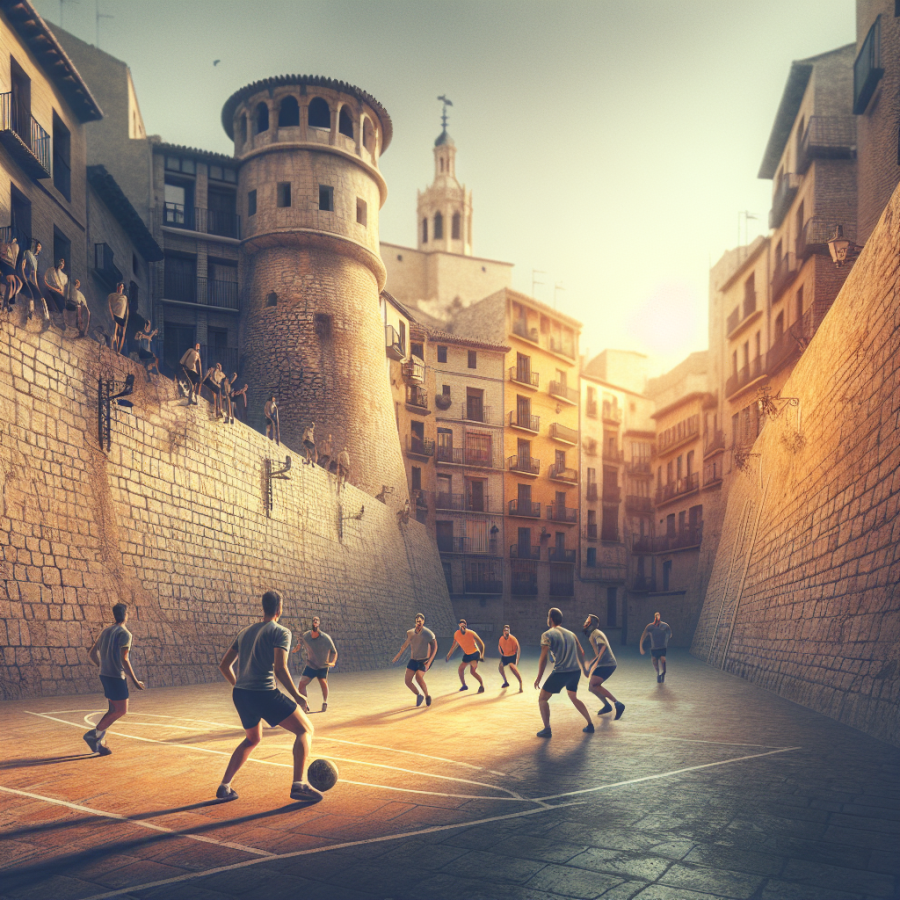The Rules and Gameplay of Valencian Pilota: Understanding the Heart-Pounding Action
Valencian Pilota, a traditional handball sport originating from the Valencian Community in Spain, is not just a game but a cultural heritage that embodies the spirit and athleticism of the region. Steeped in history and local custom, the game is renowned for its fast-paced and energetic gameplay. To grasp the essence of this heart-pounding action, one must become familiar with the rules that govern it.
**The Rules and Gameplay**
Different forms of Valencian Pilota exist, including Escala i Corda, Raspall, and Galotxa, each with its own set of regulations and nuances. However, there are common elements that outline the sport's basic structure.
**Court Design**: Traditional Valencian Pilota is played on a court known as a "trinquet", an elongated area that can be open-air or enclosed. One side of the court features a smooth wall where the ball is struck, and the other side may have a sloped roof or net that also comes into play during the game.
**Teams**: Typically, the game consists of two teams, which can be formed by one, two, or three players each. Solo play is referred to as "individual," while teams of two are known as "pairs" and the three-player arrangement as a "team."
**Serving**: The game commences with a serve, where the ball must be hit against the main wall, ensuring it bounces within designated areas on the court to be considered valid. The receiving team must return the ball after no more than one bounce on the ground or directly out of the air.
**Scoring**: Points are scored in various ways, such as causing the ball to bounce twice before an opponent can return it, striking the ball out of the opponent's reach, or hitting designated areas of the court which may count for automatic points.
**Ball and Equipment**: The ball used in Valencian Pilota is traditionally made of leather and filled with wool or hair. This differs from other handball sports where rubber or plastic balls are common. Players often wrap their hands with protective tape or wear gloves to minimize injury, as the ball can be struck with considerable force.
**Gameplay Dynamics**: Fast reflexes and agility are essential in Valencian Pilota. Players must keep the ball in motion by striking it directly out of the air or after a single bounce on the court surface, always aiming to outmaneuver the opposing team.
Unveiling the Excitement of Valencian Pilota: A Cultural Athletic Tradition
Valencian Pilota is more than just a sport; it's the beating heart of the Valencian community, a thrilling activity that serves as a conduit of culture, tradition, and communal spirit. Stepping into the streets where this game is played, one is welcomed by the sounds of the ball hitting the wall, the enthusiastic cheers of the spectators, and the palpable excitement that fills the air. Valencian Pilota is the local name for a variety of traditional handball sports, played for several centuries in the region, with each variant bringing its own set of rules and styles of play.
As we delve deeper into the essence of this sport, we find that there are several forms of Pilota, each with unique characteristics that captivate and challenge both the players and the devoted fans. Among the most popular are Escala i Corda and Raspall. Escala i Corda is played on a long, narrow court where the skillful use of rackets require dexterity and strategic savvy, while Raspall highlights the barehanded bravery of players as they fiercely compete on a smaller court.
At the core of Pilota’s appeal are the players, who are not just athletes but gladiators in their right, showcasing their physical prowess, razor-sharp reflexes, and strategic thinking. The cultivation of these skills starts early, often in childhood, at the town trinquets or open-air courts. It is a common sight to witness generations of families passing down their knowledge and passion for the sport, creating an unbreakable bond that stitches the fabric of Valencian identity.
The courts or 'trinquets' themselves are architectural marvels, grand and historic, echoing with decades of competitive clashes and communal gatherings. These courts aren't merely facilities for sporting events; they serve as cultural hubs where spectators are treated to a rich tapestry of Valencian tradition. Not just limited to sport, these events often include music, dancing, and of course, the exquisite local cuisine, making the experience of Pilota deeply immersive.
Further complementing the sports cultural voyage is the inherent language tied to it. A lexicon of terms and phrases unique to Pilota echo throughout the matches and in the lively discussions of aficionados. This special vernacular further distinguishes the game and reinforces its status as an emblem of the Valencian culture.
The excitement of the sport also lies in its dynamic and fast-paced nature.




